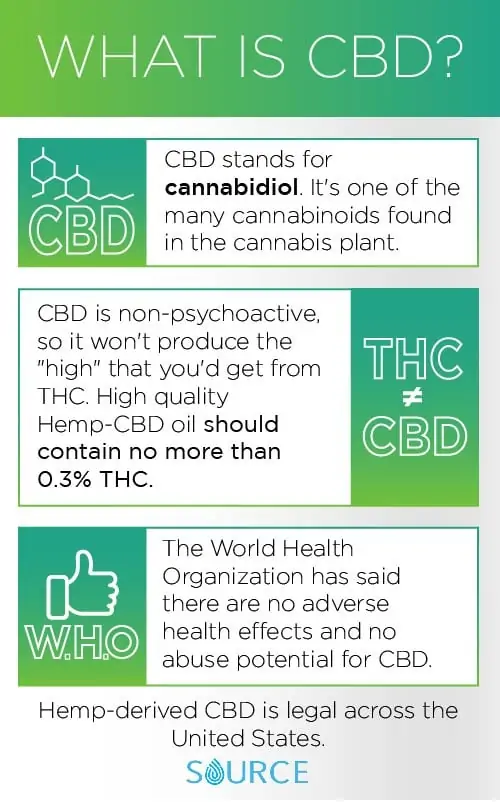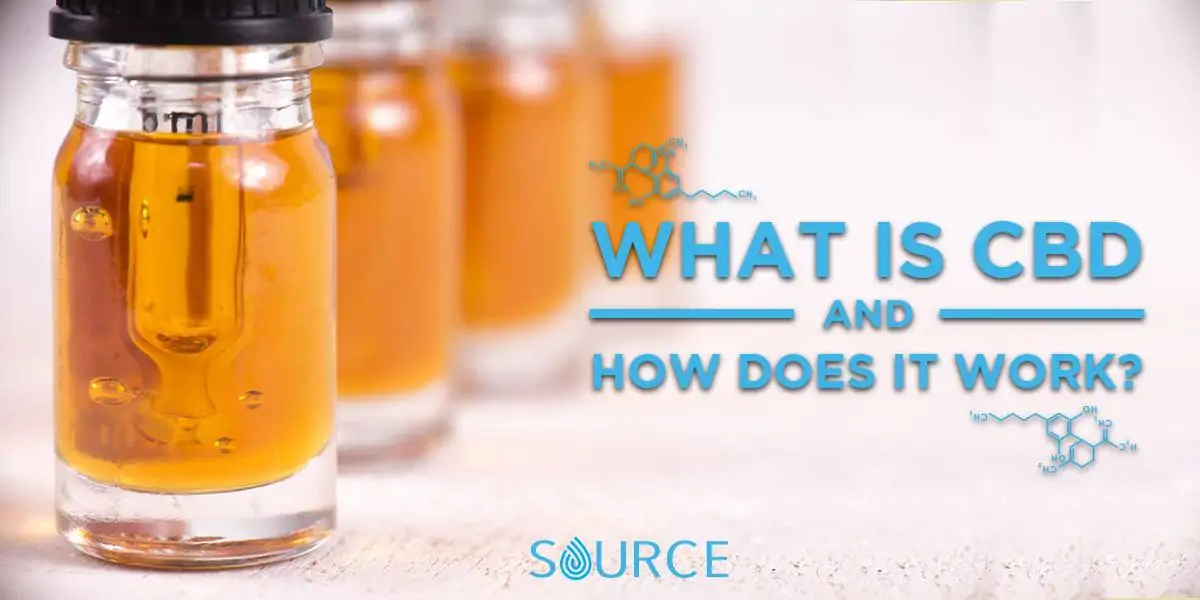CBD Oil for Health
What is CBD Oil and How Does it Work?
There’s been a lot of talk recently about CBD oil.
Thanks to its close connection to cannabis, a lot of people are asking: “what is CBD oil and how does it work.”
CBD oil has been around for thousands of years. People have been using it as a form of natural medicine for just as long.
So what exactly is this natural substance and how does it actually work? You’ve got questions, we’ve got answers.
What is CBD Oil?
First off, CBD stands for cannabidiol. It’s one of the many different cannabinoids found in the cannabis plant. Tetrahydrocannabinol (THC) is another one you’ve probably heard of. THC is the cannabinoid that makes people feel “high.”
There are two different types of cannabidiol out there:
- Hemp-based CBD oil
- Marijuana-based CBD oil
Both contain CBD, and both come from the cannabis plant, but hemp and marijuana are different varieties of the plant. The main source of most CBD oil on the market today is the hemp plant.
What’s the difference between the two plants?
CBD oil from hemp naturally contains a higher CBD to THC ratio than the marijuana plant. The THC count is usually very low (>.3%).
EXPERT TIP: For therapeutic CBD oil, you want to find one that has less than .3% THC. Here’s how to check a Certificate of Analysis.
CBD is extracted from the hemp plant in a variety of ways, some better than others. The typical methods are:
- Carbon Dioxide (CO2) Extraction
- Solvent Extraction
- Steam Distillation
- Olive Oil Extraction
The type of extraction used determines the quality and cleanliness of the oil, as well as the control over the cannabinoid concentration. Our go-to method is Supercritical CO2 extraction because it’s the cleanest and doesn’t use any solvents that can make their way into the oil and into your body.
Ready for another wrench? Since CBD comes from hemp, maybe you’re thinking they’re the same thing. If that’s the case, you’re not alone.
So, are CBD oil and hemp oil the same? Nope.
CBD Oil vs Hemp Oil
Hemp seed oil is a cold-pressed extract from the seeds of the hemp plant. CBD oil comes from the leaves, flowers, and stalks of the hemp plant. Both are totally different compounds with different makeups and different benefits.
Hemp seed oil doesn’t have the same benefits because it typically contains 0% CBD. This means it doesn’t go to work on the cannabinoid receptors. And that’s important. Let’s talk about why.
Want to know more about the history of hemp? It’s way older than you might think! Check this out.

How Does CBD Work?
It’s all about the Endocannabinoid System (ES).
The endocannabinoid system is one of the most important systems in the body when it comes to building and maintaining health. It’s a key player in keeping everything balanced.
There are two types of cannabinoid receptors in your body:
- CB1 receptors – found mostly in the brain and central nervous system (CNS)
- CB2 receptors – live throughout the rest of the body: the organs, the glands, and probably most important, the immune system
Your body produces endocannabinoids and these interact with the cannabinoid receptors throughout your body. You can increase the cannabinoids in your body with CBD oil.
Research suggests that almost every type of disease has to do with some sort of change with CB receptors.
CBD oil works by indirectly impacting the various receptors, causing some sort of change.
Here’s an example. CB1 receptors exist on nerve fibers outside of the CNS and communicate with the brain. Cannabinoids stimulate CB1s on pain sensory neurons. This impacts how you feel (or don’t feel) pain.
But it isn’t just pain. CBD activates serotonin receptors – these are linked to anxiety. CBD activates TRPV1 receptors, which are linked to pain and inflammation. On the flipside, CBD actually works to deactivate GPR55 receptors, which are associated with conditions like osteoporosis.
Pretty cool, huh? Ya, we think so too.
Was there another question we didn’t answer here? Check out our FAQs!

